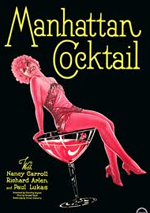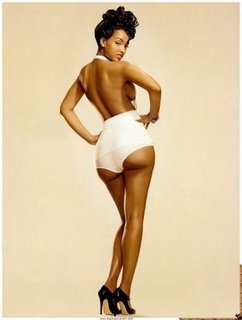Are high femmes queen bees? If you crown yourself “high femme,” are you implicitly suggesting that others are “low?” Nikki from give me space (to rock) and, more recently, buddhistfemme have asserted that “high femme” suggests a heirarchical ranking of femme that’s fundamentally elitist. This may seem like an unavoidable conclusion, particularly in today’s competitive and status-obsessed world.
I identify as both femme and high femme, and personally I’ve never felt that high femme = better femme. As I stated in my last post, my “rethinking” of high femme emphasizes that, for me, this gender is not a rank or a final destination. I see my femme identity as complex and changing–as I put it yesterday, “a nonlinear process in which there’s no identifiable finish line.” I have not donned my stilettos and clawed my way to the zenith of Sublime Femmeness, I assure you! Like other queer genders, high femme in my view doesn’t exist in a continuum but as part of nonlinear gender galaxy (see Scarlet Lotus Sexgeek on the gender galaxy model).
Fine, you might say, this sounds great in theory, but let’s get concrete: in practice high femme performance requires money and privilege, right? To some extent, yes, but this strikes me as a misconception. High femme is not an exclusive rich girl’s club, nor is it in my view any more steeped in class privilege than any other gender. Since all genders and sexualities are shaped by the social inequalities of capitalism, I think it’s fair to ask why high femme in particular should be portrayed as necessarily classist and elitist.
To say that high femme is an inherently classist gender because it “costs money” and therefore excludes those who have less of it actually sets up a very narrow, elitist notion of what high femme is. I learned about high femme from the work of my Femme Icon Amber Hollibaugh, a sex radical, leftist, union organizer and queer activist, who has written about her experience as a “rural gypsy working-class poor white trash high femme dyke” in her book, My Dangerous Desires. Her life story is just one example of how high femme has been historically linked to queer working-class communities since the 1950s.
For me, high femme says not simply how femme I am, but how I do femme. When I claim this identity and expression, it’s not to undermine anyone else–least of all other femmes! What I’m trying to do is express a part of me that was shamed, marginalized or belittled by a misogynistic and femmephobic culture. It’s about linking my embrace of femininity with trannys and drag queens and all of my femme sisters who dare to assert the right to be unapologetically and queerly femme. It’s a revaluing and denaturalizing of femininity that, for me, is fundamentally queer and feminist.
For all of these reasons, I call myself a high femme. Nowdays, when butch is still the gold standard, genderqueer is cool, and bois are hot, I think it’s important for high femme to be recognized as a valid gender identity and expression that sparkles brightly in this queer gender galaxy we call home.
Filed under: Lesbian & Queer Genders, Queer Femininity | Tagged: capitalism, class, gender galaxy, high femme as nonlinear process, ranking queer femininities | 12 Comments »






